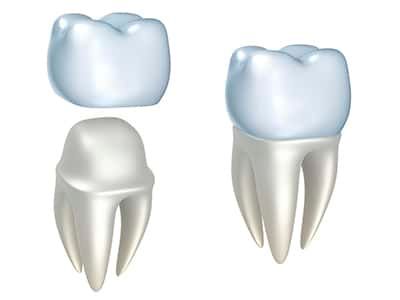How A Crown Helps Following A Root Canal
Dental crowns are usually the final step of a root canal treatment, but some still wonder if they are truly an important piece of the process. Root canals can be misunderstood because they are often associated with discomfort, but the purpose of root canal therapy is to alleviate pain and prevent future damage. This often includes the protective cap or dental crown.
What Is A Root Canal?
The purpose of a root canal is to remove infection from the center of the tooth. This means the infection has reached the tooth’s roots, referred to as pulpitis. Pulpitis occurs when tooth decay has gone untreated, or when there is damage to the tooth that allows an infection to move deeply. The process of root canal therapy can be uncomfortable simply because it is necessary to get deep into the tooth to remove the infection, but the end goal is to alleviate discomfort altogether. Once the root canal is complete, the tooth is left hollowed out without the pulp, which is why a dental crown can be beneficial.
Reasons For A Dental Crown
A hallowed tooth without pulp is left unprotected after a root canal. If the tooth that received the procedure is one in the back, it typically bears a lot of force while eating and chewing, so it may need extra support. A dental crown may benefit oral health if the teeth on either side are not structurally sound. If you have bruxism or frequently grind your teeth, a dental crown is important to keep the tooth strong. A hallowed tooth is already weaker than teeth that have been untouched. It is also important to consider past damage and whether this will affect the structure of your teeth.
A dental crown may seem like an unnecessary step to an already uncomfortable procedure, but in many cases, it can be the most beneficial option when considering your overall oral health. If you have questions about dental crowns or root canals, please call our office, and we will be happy to help.


